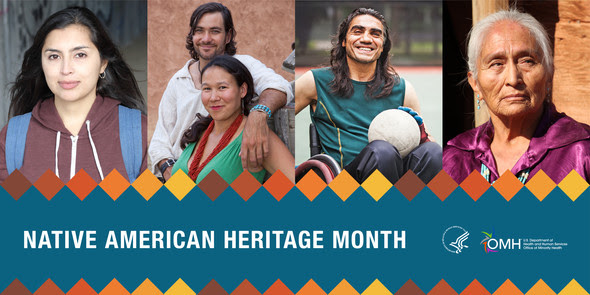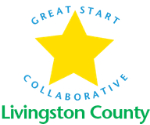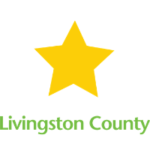
Native American Heritage Month
| Michigan Recognizes November as Native American Heritage Month Governor Whitmer proclaims the month of November as Native American Heritage Month in Michigan. Michigan is home to more than 240,000 American Indian or Alaska Native residents and twelve federally recognized Indian tribes, each a sovereign government with an inherent right to self-governance and self-determination. This month and every month, Michiganders are encouraged to celebrate and honor the rich, diverse cultures, traditions, and histories of Native Americans, while acknowledging the significant contributions they make to government, education, economics, art, science, literature, and more in Michigan and the United States. Although November is drawing to an end, it is important that we take time to educate ourselves and expand our understanding of the histories and cultures of our tribal neighbors, communities and partners. Read the November 2021 proclamation at Michigan.gov Native American Heritage Month Native American Heritage Month celebrates the rich and diverse cultures, traditions, and history and acknowledges the important contributions of American Indians and Alaska Natives in the United States, including their work in public health. Throughout November, the HHS Office of Minority Health (OMH) has worked to raise awareness about health disparities impacting the American Indian/Alaska Native (AI/AN) community and policies, programs, and practices aimed at advancing health equity for AI/AN populations. Visit the Office of Minority Health Native American Heritage Month website to find resources, graphics, and materials developed by OMH and its federal and non-federal partners.  This month was established to honor and recognize Native Americans as the first people of this nation and to celebrate both their cultural heritage and integral importance to our past, our present and our future. In 1990, President George H.W. Bush declared November as National American Indian Heritage Month, and every president since has declared November as Native American Indian Heritage Month. The Native American Heritage Day Act was enacted by Congress in 2008 and signed by President George W. Bush in 2008. Native American Heritage Day is the day after Thanksgiving, it is also known as a National Day of Mourning. It honors and remembers American Indians across the nation. The day celebrates the vibrant cultures, traditions and heritages while recognizing the many contributions Native Americans have made.  U.S. Secretary of the Interior Did you know that Deb Haaland, U.S. Secretary of the Interior, made history as the first Native American to serve as a cabinet secretary? Learn more about this trailblazing woman here. Secretary Haaland is a member of the Pueblo of Laguna and a 35th generation New Mexican. Throughout her career in public service, she has broken barriers and opened the doors of opportunity for future generations. Secretary Haaland was the first Native American woman to be elected to lead a State Party, and one of the first Native American women to serve in Congress. In Congress, she focused on environmental justice, climate change, missing and murdered indigenous women, and family-friendly policies. Learn more about Native American Heritage and Public Health Strategies for Reducing Health Disparities As we celebrate Native American Heritage Month this year, the CDC highlights Strategies for Reducing Health Disparities, which offer real-world examples of how public health programs can address differences in health outcomes and their causes among groups of people. The 2014 report includes how four AI/AN tribal communities implemented road safety interventions to lower motor vehicle–related injuries and death. The 2016 report discusses the Traditional Foods Project, in which participating tribal communities worked to restore access to local, traditional foods and encouraged physical activity to promote health.  Sudden Unexpected Infant Death Sudden unexpected infant death (SUID) is the death of an infant less than 1 year of age that occurs suddenly and unexpectedly, and whose cause of death is not immediately obvious before investigation. Most SUIDs are reported as one of three types: sudden infant death syndrome (SIDS), unknown cause, or accidental suffocation and strangulation in bed. From 2011-2014 SUID rates for AI/AN infants were more than twice of those for non-Hispanic white infants. Parents and caregivers can take actions, like placing their baby on his or her back to sleep, to reduce the chance of SIDS and other sleep-related infant deaths. The 1,000 Grandmothers project is a culturally appropriate approach to reduce SUID rates within the Native American population. This project created opportunities for tribal elders (especially grandmothers) to mentor and educate young Native parents on safe sleep practices for infants. For more information visit the CDC’s Office of Minority Health & Health Equity and the CDC’s Tribal Health website. American Indian & Alaska Native Contributions to Public Health Swinomish Tribe Assesses Climate Change Impact The Swinomish Tribe has been working to take action to address climate change. The environmental impact of climate change poses a significant threat to the health of communities worldwide, putting the foods we eat, the water we drink, and the air we breathe at risk. For the Swinomish Indian Tribal Community, preserving first foods from the effects of climate change is of particular concern. Read more about this project in CDC’s Field Notes. Tribal Syringe Services Program Helps Reduce Harm from Injection Drug Use Rising rate of hepatitis C, coupled with an increase in injection drug use, prompted he Eastern Band of Cherokee Indians (EBCI) health officials to create the Tsalagi Public Health Syringe Services Program in 2018. This comprehensive harm reduction initiative aims to decrease the spread of bloodborne infections while also enabling people to access referrals for substance use disorder treatment, medical care, and other community services. Read more in CDC’s Field Notes. Read more about American Indian & Alaska Native Contributions to Public Health  !! Sign Up for Maternal Infant Health Updates and Emails !!  For more information on maternal and infant health in Michigan visit: Michigan.gov/MIHEIPContact the Division of Maternal & Infant Health at MDHHS |




